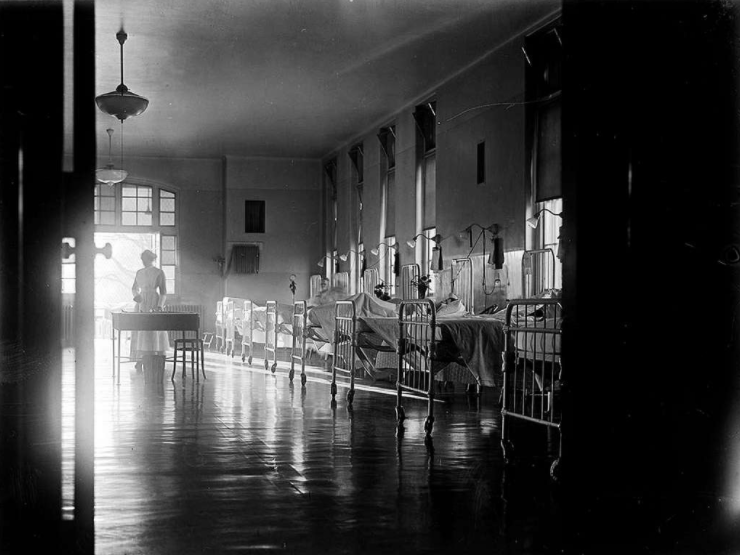
I realize that this may sound alarmist, but as a frontline RN, I feel that the pandemic has so severely challenged the already precarious health care system that it is in danger of collapsing. Nursing shortages are at critical levels across BC as well as across the country. Without nurses, the current system is not able to function safely. Causes of the nursing shortage are multifactorial. Ensuring that there are enough graduated nurses ready to enter the profession is one of the solutions to the crisis. To figure out where we need to go, I will need to start at the beginning. How does the historical educational foundations for nursing education impact how registered nurses are educated now? Is it time for a change?
Training for registered nurses typically involves a 4 year undergraduate degree. Admission standards are stringent and waitlists exist for students with a 93% high school graduation grade. Governments are scrambling to add more seats and are offering condensed programs for students with existing degrees.
It wasn’t however, always this way. The professional model of nursing is only one of the educational models that existed for nursing. The apprenticeship model – the hospital based program – trained nurses up until the early 1990s until all the provinces, with the exception of Quebec, went to the professional, degree based program. (Duncan, Scaia & Boschma, 2020).
I am a hospital trained RN. I completed 2 years of university courses towards a general science degree thinking that I would go into medicine. Realizing that medicine was a long haul prospect and with little financial and social supports, I decided that the best option was for me to go into nursing. The university I was going to had a BN program. When I reviewed the degree requirements I was not happy with the limited amount of clinical time that was provided. Nursing to me was about being technically proficient with equipment and having the confidence and ability to perform necessary skills. Nursing theories like Levine’s 4 Conservation Principles and terms such as emancipatory nursing praxis did not sound like skills I needed for dressing changes and IV starts.
Consequently, I headed over to the local school of nursing program at the tertiary centre in my city and completed a diploma in nursing. The 3 year program had me in the clinical area from the onset. It combined theory with concurrent clinical time. When I graduated I felt ready to tackle hospital based care. This was a contrast to my professionally educated peers who seemed to struggle at first with the tasks of the clinical area simply because they did not have as much time on the units as I had had.
In July 1920, Ethel Johns stated: “Physicians and the public accuse us of educating nurses away from nursing and rendering them unwilling to perform ordinary nursing duties. I leave it up to you to say whether or not there is some truth in this accusation. They urge us to lower our standards, to give shorter courses, to do something to get nursing attendance for people who need it” (Street, 1973, p. 135 as cited in Duncan, Scaia & Boschma, 2020, p. 5).
Nursing is once again in crisis. As I am in the business of providing nursing education, I have some questions that I would like to investigate.
- What are the advantages and disadvantages of the apprenticeship and professional models of nursing education?
- What is nursing theory and how does it improve nursing care?
- What lessons can we learn from the past?
- Are there any innovations in nursing education that can be offered to help with the crisis in nursing?
See Parts 2-6 for my investigations and reflections to these questions.
Reference
Duncan, S. M., Scaia, M. R. & Boschma, G. (2020). “100 Years of University Nursing Education”: The Significance of a Baccalaureate Nursing Degree and Its Public Health Origins for Nursing Now.” Quality Advancement in Nursing Education – Avancées en formation infirmière: Vol. 6: Iss. 2, Article 8.DOI: https://doi.org/10.17483/2368-6669.1248
